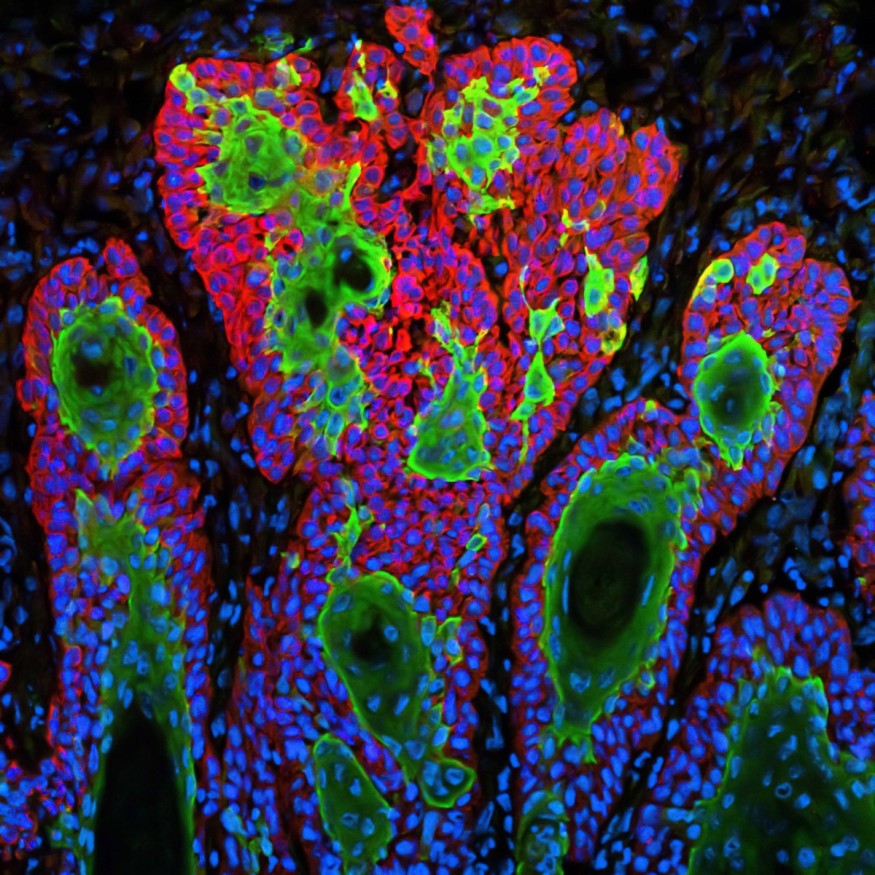The study titled "Arginine Limitation Drives a Directed Codon-dependent DNA Sequence Evolution Response in Colorectal Cancer Cells," which was published in Science Advances, showed that cancer cells crave a certain protein and that starving them of this nutrient could trigger the body's natural immune response.
Researchers at Rockefeller University under Sohail Tavazoie's Laboratory of Systems Cancer Biology found that this amino acid becomes limited in different human cancers, which prompt them to seek a level genetic workaround by manipulating proteins at their disposal to produce the amino acid. But they also evolve to diminish their dependency on it.

Cancer Cells Crave for Arginine Protein
According to Phys.org, the protein cancer cells crave is called arginine. It is an amino acid naturally found in the human body and is abundant in foods, like fish, meat, and nuts. But they are also a critical ingredient for cancer cells.
Arginine is involved in a number of functions at the cellular level, such as nitrogen waste disposal and protein synthesis. More so, Dennis Hsu, the study's first author and a former member of Tavazoie's lab, said that it is one of the few amino acids that has been demonstrated to control how immune cells respond to cancer and other immunologic stimuli.
Its deficiency, for example, has been related to inflamed tissues in patients suffering from Crohn's disease, ulcerative colitis, inflammatory bowel disease, or an H. pylori infection, whose tissues might have low arginine levels. People who do not receive treatment for these illnesses are more likely to develop stomach or colon cancer.
The arginine-cancer link was discovered as part of a wider study on codons, which are triplets of DNA bases that each provides the blueprint for creating a single amino acid.
Hsu documented dozens of cases of codon mutations while sifting through the Cancer Genome Atlas, but arginine codons stood out among them. They were lost considerably more than they should have been throughout the changes. The most severe deficit was seen in stomach and colorectal malignancies.
Tavazoie said that it was a surprising discovery and something that they did not expect. The team does not know how the first arginine drops came about, but they believe some cancers developed under low levels of arginine and carried it to their DNA.
READ ALSO : Ants as Bio Diagnostic Tool in the Future? These Tiny Creatures Can Detect Cancer in Urine
Cancers Mutated After Being Starved
The team cultivated cancer cells to see how they will react if deprived of arginine, the press release reports. They put the cells in several rounds of cellular malnutrition after growing them for months.
Due to this, the cells mutated in an attempt to gain access to what the cells required to live. But it was not totally effective as evident in a separate experiment. The Jerusalem Post reports that the team found an increase in mutations toward codons that produced amino acids where they are surrounding cancer cells and become more appetizing to them.
Starving cancer cells collect numerous mutations that appear foreign to the immune system, which may be detrimental to immunotherapy. Hsu explains that starving a cancer cell may stimulate the acquisition of additional mutations that can later be identified by the immune system. This theory is not yet tested, but it would be interesting to experiment on them, Hsu added.
RELATED ARTICLE: Ultraviolet Nail Polish Dryers Could Cause Cell Death, Cancer-Causing Mutations
Check out more news and information on Cancer in Science Times.
© 2025 ScienceTimes.com All rights reserved. Do not reproduce without permission. The window to the world of Science Times.












